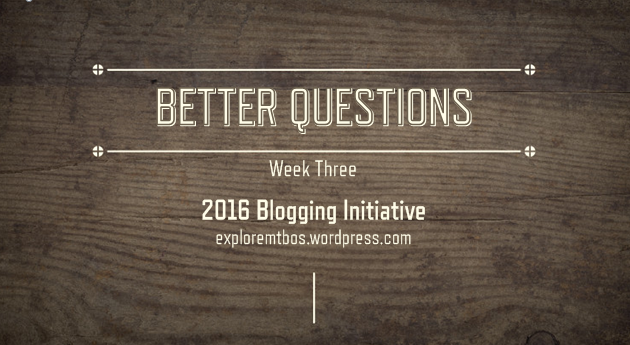
So, apparently, I am incapable of just following a prompt - I guess I just like to do things my own way! :)
I was supposed to talk about good questions, which made me think about what questions I have used that have the biggest impact on student learning, as well as where I see the most issues with misconceptions. I think the idea is meant to be more like those "HOT" (higher-order thinking) questions that have been buzzing lately, but I am going to swerve and head a TOTALLY different direction...
Here's what I've noticed in my time as a math teacher - the issue for most kids when they "don't get it" in math isn't really centered on all those things that most of us complain about (imprecision, lack prerequisite skills, etc.). The issue I see the most is that kids literally do not comprehend what the problem means - they don't know how to relate what they are presented in math class to any kind of recognizable context.
For example, if a student is doing the following problem: 2.80 + 7, and they do the following:
2.80
+ 7
2.87
Does that student really understand what 2.80 means? What 7 means? So if we extend this line of questioning, does this student understand place value?
It seems to me that this student is just performing a memorized procedure for addition, without thinking about context or meaning. If we asked this same student the same question, but put dollar signs in front of the numbers ($2.80 + $7) would he/she make the same mistake? This could tell us a lot in terms of where to go to help fill in the gaps here.
It seems crazy to me that there is SUCH a huge focus on reading comprehension with students, especially early in elementary school, but there isn't that same idea being carried over to create "math comprehension." I have so many kids that are bright and capable but just don't know what certain numbers or symbols really mean. They get so caught up in jumping into a procedure that they often don't even use the correct values (see above example), or maybe they just write down all the numbers in a word problem and add them up because they see the words "all together" somewhere near the end.
So... Here's the point. The number one question that seems to help kids when they are struggling? I simply point to something and say, "So, what does this mean?" (or if they are looking especially unsure, perhaps, "What do you think this means?")
Then follow up with things like:
"How do you know that/Why do you think that?"
"Could you write it out/show me/draw it/make a model?"
"What do you notice?"
.... Etc...
Now... I don't start with "What does this mean?" if I am teaching something brand new. Usually I do noticing and questioning first (my kids are too "cool" to call it wondering - so lame... LOL!), and "What do you notice?" is like my go to question when we are exploring, so I think it is probably a tie in terms of both usage and impact on student learning with "What does this mean?" but, seriously, everyone is already on the boat with noticing and wondering. I feel like math comprehension needs some love now! :) Who's with me?
No comments:
Post a Comment